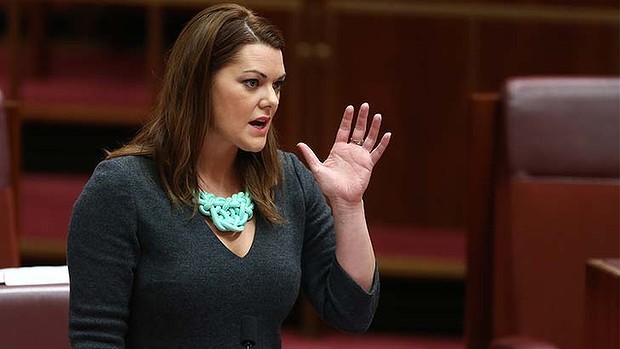Strewthcobber
Phil Kearns (64)
Motion just passed.
Terms of reference attached

Sent from my D5833 using Tapatalk
Terms of reference attached

Sent from my D5833 using Tapatalk

Very easy to amend it to "super rugby"competition. You're in Parliament, not a court of law.Strange motion really.
5 teams to 4 in the "national competition"?
Seems to me the ARU will be able to use the NRC to answer most questions brought forward by these terms of reference
Sent from my D5833 using Tapatalk
And this motion and subsequent steering Commitee has the power to do what exactly? Yes, compel the ARU, RugbyWAand others to give evidence, and map out some already established timelines, but to what end?
As far as I know, the government can't re-instate the Force, or sack the ARU board. I guess they may be able to use any compelling testimony to sue the ARU for state-controlled asset cost recovery, i.e. Stadium and tax-payer costs, etc.
And of course, it makes Ms Reynolds a popular figure in her electorate, fighting the evil East on behalf of the victimised West.
Reynolds tweeted: "Hi Christiaan, if needed, the Senate has the power to summons witnesses to appear and also to order the production of documents."
And the good senators might enjoy seeing Clyne squirm, given his NAB past.
I had the pleasure of appearing at a senate hearing many years ago. I think he will survive. This has got nothing at to do with his past as a banker, and no senator would be stupid enough to think that it does.
I had the pleasure of appearing at a senate hearing many years ago. I think he will survive. This has got nothing at to do with his past as a banker, and no senator would be stupid enough to think that it does.




And the good senators might enjoy seeing Clyne squirm, given his NAB past.
Look, I'm no Clyne apologist, but he is a former NAB boss, which means appearing before Gov Steering Committees is hardly new or worrying for him. He knows exactly what is expected at these things, and I have no reason to doubt he will be prepared accordingly.
And regardless of what many think, it really does appear that the ARU followed the correct process and have a clue legally. FFS, 2 Judges agreed with him and found in the ARU's favour.
If anything, the QC (Quade Cooper)'s and AF and the Force board clearly weren't as secure as they thought. That says quite a bit.
There is a question in transparency and when the Force were really internally targeted. That appears to have been early in the piece, but to be fair, the statement of timelines and commentary released by the ARU yesterday did explain much of that.
That lack of transparency actually does bother me, because I would have liked to know the Force were targeted back in Feb as well; that would have saved much worrying by the Rebels and their supporters.
Anyway, the last bit of the circus needs to play out. Then, with the greatest of respect to the Force, it will be time to move on.
What is that sound I hear? Could it be the flogging of a dead horse?
Strange motion really.
5 teams to 4 in the "national competition"?
Seems to me the ARU will be able to use the NRC to answer most questions brought forward by these terms of reference
Sent from my D5833 using Tapatalk
His last performance wasn't a good as you might think.
Managing the message remains the NAB’s top priority. Clyne’s 29 May performance on 3AW has one online commenter noting astutely:‘He sells this crap like a used car salesmen selling a car with a blown engine for full price. Conveniently not addressing the most important issues and relentlessly presenting the irrelevant.’
The ToRs are deliberately designed to be broad and can be amended and refined by the committee as they are not experts (key thing to remember!). Most who have to deal with them also read them in terms of what ruled out as well as in. Two things you don't do is take the piss or be a smart-ass if your the one(s) answering the questions.
